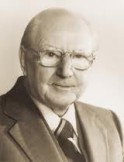Verse 14. That he may bring forth food out of the earth. The Israelites at the feast of the Passover and before the breaking of bread, were accustomed to say, "Praise be to the Lord our God, thou King of the world, who hath brought forth our bread from the earth": and at each returning harvest we ought to be filled with gratitude, as often as we again receive the valuable gift of bread. It is the most indispensable and necessary means of nourishment, of which we never tire, whilst other food, the sweeter it is, the more easily it surfeits: everybody, the child and the old man, the beggar and the king, like bread.
We remember the unfortunate man, who was cast on the desert isle, famishing with hunger, and who cried at the sight of a handful of gold, "Ah, it is only gold!" He would willingly have exchanged for a handful of bread, this to him, useless material, which in the mind of most men is above all price.
O let us never sin against God, by lightly esteeming bread! Let us gratefully accept the sheaves we gather, and thankfully visit the barns which preserve them; that we may break bread to the hungry, and give to the thirsty from the supplies God has given us. Let us never sit down to table without asking God to bless the gifts we receive from his gracious hand, and never eat bread without thinking of Christ our Lord, who calls himself the living bread, who came down from heaven to give life unto the world. And above all, may we never go to the table of the Lord without enjoying, through the symbols of bread and wine, his body and blood, whereby we receive strength to nourish our spiritual life! Yes, Lord, thou satisfiest both body and soul, with bread from earth and bread from heaven. Praise be to thy holy name, our hearts and mouths shall be full of thy praises for time and eternity!—
Fredrich Arndt in
"Lights of the Morning", 1861.
From the additional notes accompanying Charles Spurgeon's The Treasury of David



